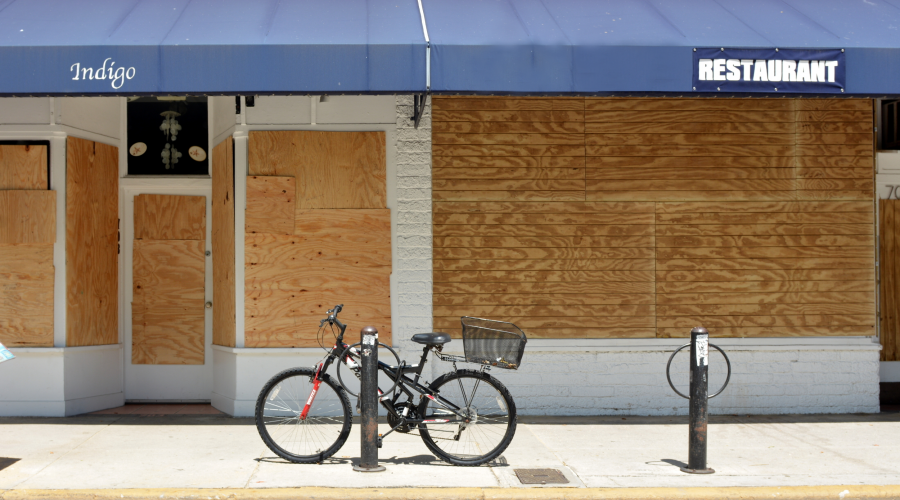Jul 31
9 Things You Can Do to Protect Your Commercial Properties
July 31, 2019
 The hurricanes that affected our island not too long ago served as a reality check that reminded us of the importance of being prepared, which in turn helps mitigate their financial impact on your business.
Below, we offer a guide with some ideas you should consider to protect your business’s commercial properties, especially the facilities in which they are located, your inventory, and the equipment you need to keep your business running after a catastrophic event.
The hurricanes that affected our island not too long ago served as a reality check that reminded us of the importance of being prepared, which in turn helps mitigate their financial impact on your business.
Below, we offer a guide with some ideas you should consider to protect your business’s commercial properties, especially the facilities in which they are located, your inventory, and the equipment you need to keep your business running after a catastrophic event.
- Determine whether your property is in a flood zone. Check the maps of flood zones and determine whether your property is in a floodable one. The Federal Emergency Management Agency (FEMA) has an up-to-date map on its webpage fema.gov. Contact your insurer and ask about flood policies. Remember that regular property insurance policies do not usually cover damage caused by flooding. If your property is securing a loan, check with the financial institution that holds the loan if the property already has a flood insurance in place.
- Make periodic inspections of your commercial property. Inspect your property and make any necessary repairs to ensure that it can resist an unexpected event. Ensure that signs, awnings, equipment on the roof, and other accessories on the exterior of your property are firmly attached to the structure. Keep drains, rain gutters, and roof areas clean. Prune any trees that might cause damage to the structure or to electric cables.
- Take a yearly inventory of all your belongings. Take photos or videos of the entire property so that you can easily identify any damage caused by the event.
- Prepare the property when an emergency is imminent. Remove antennas, signs, awnings, and any other accessory that is not firmly attached to the structure. Cover windows and doors with storm shutters or sheets of plywood. Check door and window frames to ensure that they are tight and well installed. Take objects indoors that may be picked up by the force of the wind and become projectiles. Raise elevators to the top floor and turn off the system. Be sure that the machine room is well protected from water leaks or other types of damage. Water tanks should be fully filled and their covers should be sealed. Protect electrical equipment from water; cover equipment with plastic sheeting and raise it off the floor.
- Protect your business’s documents. Keep duplicate files of your business’s and your customers’ records. Keep copies on a server, in the cloud, or in a physical location that you can access from other locations in case your property is destroyed or inaccessible. Some of the documents you should protect are financial information; employee, customer, and supplier databases; municipal, state, and federal licenses and certifications; tax receipts; and insurance policies.
- Ensure that your generator is receiving its manufacturer-recommended maintenance. Check to be sure you have supplies such as fuel, filters, and lubricants to keep the generator running after the event. Store the fuel in a well-ventilated place. Keep handy the telephone numbers of the company or companies that provide service and maintenance to the generator. Go over the procedure for starting and running the generator with the personnel who will be in charge of operating it in case of emergency.
- Protect areas under construction. Structures under construction are extremely susceptible to atmospheric events because of the damage those events can cause to the structure and the delays such damage can cause. Pick up construction materials that could become projectiles and damage yours or your neighbors’ lives and property.
- Consider making contractual agreements with service representatives for post-emergency needs. Some of the services you might want to cover are: equipment repair, trash and rubble removal, structural repair, engineering work, rental of refrigerated trucks or vans for perishable merchandise, transportation, equipment rental, vehicle rental, hotel, and utilities. Consider preliminary agreements for leasing or renting alternative locations after the event. Remember that after a catastrophe many services are not available, or their cost rises dramatically.
- Periodically review and update your insurance policies. Realizing that your business was not adequately covered when you’ve already suffered a loss can be financially devastating. Check to ensure that your insurance policies are up to date, paid, and that you have all the coverage, and types of coverage, that are needed for you and your company. Check to see which properties are covered under your policy and how they will be valued in case of a loss.


